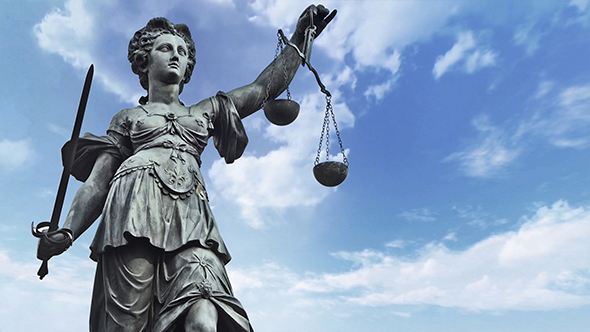 IV. The Truth, the Whole Truth, and Anything But the Truth: Brothers in the Dock
“If the police get their hands on those tapes, I’m fucked.” - Lyle Menendez
I: All My Dreams, Torn Asunder...
The Arrest
IV. The Truth, the Whole Truth, and Anything But the Truth: Brothers in the Dock
“If the police get their hands on those tapes, I’m fucked.” - Lyle Menendez
I: All My Dreams, Torn Asunder...
The Arrest
While Erik played in a tennis tournament in Israel, Lyle was taken as he and his friends drove in his yellow jeep to get some food. Zoeller knew the elder Menendez was only back in Beverly Hills for a short while, as he was now running a restaurant he had bought in Princeton, and this was their chance to catch him. They decided against surrounding the mansion since their grandmother, Jose’s mother Maria was staying there, and the people of Beverly Hills were a little averse to armed standoffs in their backyards. Seeing the blockade, Lyle furiously slammed the jeep into reverse - right into a cop van blocking his exit. Armed police jumped out and shouted at the three men in the jeep to get out and lie down, which they did.
After a short while the two friends, one of which was Glenn Stevens, the guy who had agreed to try to entrap Erik, were released and sent back to the mansion to break the news to Maria that the police had arrested the killer of her son and daughter-in-law, and that it was their son, while Lyle was booked and then sent to the LA County Men’s Jail. The police held a media announcement, the motive given for the crime simple greed. They also said they would be pushing for the death penalty. The family, of course, did not believe it and were determined to stand by Lyle. Erik, when he heard of the arrest of his brother, rushed home and turned himself in. He was nothing without his elder brother. He was quickly reunited with him in an LA cell.
Now that they had their main suspects, the police had to shore up their case. The tapes all but proved the brothers' guilt, but given that they had been seized from a psychiatrist’s office, even though all the proper forms had been observed and everything had been done by the book, there was a good chance they would be ruled inadmissible as evidence, which made finding the weapons such a priority again. Luckily, again Smyth came up trumps, advising them not only of the dumping site for the guns (which though searched for were never found) but that the boys had bought them not in LA but in San Diego. Frustrated at all the time and man-hours wasted, Zoeller nevertheless started from zero again, painstakingly visiting every gun shop along the San Diego Freeway, getting the same answer in every shop until in desperation he tried the Big 5 discount store, where to his amazement and delight he found a receipt for two Mossberg shotguns, bought August 18 1989 - a mere two days before the killings - and paid for by one Donovan Jay Goodreau.

Interviewed by Zoeller, Goodreau realised his stolen driving licence had been used by the brothers to buy the guns, but confirmed the signature was not his. The DA ordered samples of the two Menendez’s handwriting to be collected, for comparison. Erik refused to give a sample. But now the carelessness of the two brothers began to come back to haunt them. Although the clerk at Big 5 could not identify the buyer of the gun from the mugshots he was shown, nor were the police able to lift any fingerprints from the form, one of the other clerks remembered that one of them had called back days later to ask about the video surveillance. Turned out there was no surveillance - the cameras had no film in them. But the call itself had to be treated as a suspicious act. Why would anyone want such information?
The Trial

Of course, as might be expected, Menendez money bought the best defence team possible. Heading it was Leslie Abrahamson, a tiny woman with a mouth and manner that varied completely inversely with her stature. She was a feared figure, a tenacious and vicious fighter for her clients, and vigorously opposed the death penalty. She was also someone who would stoop to any depths to win her case, and who didn’t care all that much if her client was guilty, as long as she could get them off. She would defend Erik, while the quieter and less experienced, though no less determined Jill Lansing would be at Lyle’s table. Facing both would be the returning Pam Ferrero, now married and a Bozanich, who had been asked back onto the case when the DA lost faith in the man meant to take first chair, Irving Alhadeff. It was almost a case of things coming full circle for Ferrero, now Bozanich, as she had been the one trying to build the case against the brothers, but had had to go back to another case she had been working on and leave this one in the hands of Alhadeff.
The prosecution held its breath for several days while closed hearings went on to determine whether or not the tapes seized at Oziel’s office could be used as evidence. In a major coup, the judge ruled that they could. The defence immediately appealed the decision, but it was upheld; the appeal delayed the trial for almost a year. Giving his ruling in open court, the judge quoted from transcripts from the tapes, proving in the boys’ own words their guilt. The family, no surprise, was shocked, and much of the brothers’ support dissolved, though, it must be said, not all. Abramson, unbowed, stated her intent to appeal to the highest court in the land. This added another year onto the start of the trial, and in June 1992 the Supreme Court issued its ruling.
It did not go well for the prosecution.
One tape would be allowed into evidence, but not the one Zoeller and Bozanich wanted, and none of the tapes could be played in court. Abramson crowed over her victory, though the brothers didn’t seem to see it as such. And now the agency of the case’s biggest break, and that which enabled it to come to court, was about to throw a serious spanner in the works. Judalon Smyth took out indictments against Oziel, claiming he all but hypnotised her, raped her, plied her with drugs, and put her life in danger by having her listen outside his office door when Lyle was in there being told what his brother had said. Her accusations were sure to be picked up upon by Abramson and her defence team, and used to discredit the psychiatrist as an unreliable witness.

In response, Oziel and his wife, who stood by him, fought back and called Smyth delusional, vindictive and a liar. They detailed how they had opened their home to her after she had become fearful for her life, and how she had threatened and abused them while there. Oziel himself denied he had asked her to listen at the door, pointing out that it being a psychiatrist’s office and security and privacy being of paramount importance, it was all but impossible for any intelligible sound to be heard through the door. He painted Smyth as someone scorned and out for revenge, and turned her accusation of violence and ill-use of her back upon him, saying he was the one who was frightened of her.
Meanwhile, in jail, Lyle was not popular. A man who was used to getting everything he wanted and answering to nobody, with little feeling or sympathy or even time for others, he did not take to the life of a prisoner well, and had many complaints lodged against him. Erik seemed to be sliding towards or revealing a homosexual side, and when a priest began attending him, the younger brother began to spill details of abuse he allegedly suffered at the hands of both his parents. These accusations - which the dead man and woman could not refute - would form much of the basis of their defence case, as Abramson went, as she was known to do, for the “abused-child-kills-abusing-parent-let-him-off” angle which had served her so well in the past.

But now that the idea of the gang hit had been put to bed completely, it emerged that the brothers really hadn’t thought it through. A kneecapping is a popular form of punishment, yes: they had it here in Ireland (at least, up the north) during the Troubles. But it’s meant as a warning. They smash your kneecaps, you’re on crutches or in a wheelchair for a while, you get better, you do what you’re told otherwise next time it will be worse. Or maybe you don’t recover, and spend the rest of your life in that wheelchair, wishing you had listened when you were warned. And you serve as a warning to others. So there would be no point in kneecapping someone while at the same time killing them in such a brutal fashion. Why bother? A warning shot into the brain? Made no sense.
Also, it’s a well known fact that in general, mobs don’t kill families. Here, yes, the gangs are led by no code of honour of any sort, and even a blameless taxi driver who has the bad fortune to be related to a mob boss can get shot, but in America, particularly among the
cosa nostra, who revere mothers and wives as angels, there is an understood ban on hurting the women. Yet the Menendezes gave their mother the most grisly and protracted death of their two parents. Mob hits also, generally, are more in the surgical line, as in, not so bloody and violent. Bugsy Siegal was an exception, though nobody has ever confirmed for sure that his was a mob hit. But even the St. Valentine’s Massacre in the 1930s only involved the guys being machinegunned down. Messy, sure, violent certainly, but not overkill. And that was Capone.
No, the attempt to make the murder of their parents look like a mob hit was overdone, based on an inexact knowledge of gang behaviour and zero experience with mobsters and their
modus operandi. The killing had all the hallmarks of having been made to look like that, but not being that. Had a more experienced police force than the BHPD been investigating, it’s likely they would have quickly dismissed such a theory as absurd.
Back in jail, plans were found in Lyle’s cell which seemed to show the layout of a building, but did not conform to the specifications of the jail, so though the brothers had been accused of trying to hack through their chains and leg it, the plans didn’t look like ones for escape from the jail. What they were, the prison officers did not know. Letters accompanied the plans, which spoke of going to South America, then to the Middle East. Presumably this was to avoid extradition back to America; his letter then went on to counsel Erik not to testify against him, to have faith, to remain loyal. Very oddly, he mentioned that he was determined that their parents should not have died in vain. Considering he and his brother killed them, this is a statement that’s very hard to reconcile, unless you assume he was compartmentalising, and was refusing to realise that it was his fault.
Next he talked about family secrets, but did not allude to what they were. He was concerned though that these would come out in court, and worried what bearing they might have on the case. Then he as much as admitted his guilt, saying “what we did in August was a mistake.”
As for Jose, a line comes to mind from Shakespeare’s
Henry IV, Part I:
“Ill-weaved ambition, how much art thou shrunk!
When that this body did contain a spirit,
A kingdom for it was too small a bound,
But now two paces of the vilest earth is room enough.”
After all his grandiose plans - buying an island for his family, running for the Florida senate, seeing his sons grow up to be famous tennis stars, and no doubt leaving behind some massive monument to his greatness, with his two sons now in jail and awaiting trial on the murder of he and his wife, all that was left for the world to remember Jose Menendez was a plastic tombstone and some dead flowers. History would not remember this Cuban immigrant who had wrestled the American Dream and made it do his bidding, forcing life to shape itself into the destiny he wanted, the destiny he demanded. No. People would only remember that this was a man who pushed his children to achieve greatness, and that they turned on him and took his life, the ultimate, the final, the worst betrayal.
Shakespeare again comes to mind:
“Let her see," snarls an angry King Lear
"how Sharper than a serpent’s tooth it is to have a thankless child!”
Let’s just pause here before we go any further, and examine the evidence. It may at this case be all circumstantial, but it’s pretty compelling all the same. A number of questions arise.
*How did the killers gain such easy access to the Mendendezes’s home?
*Why did the family dog, fiercely protective of Kitty, not attack or even make any sound?
*How did the killers know that their targets were likely to be asleep in front of the television?
*Why were there wounds on both Kitty and Jose’s knees? Though in Kitty’s case, her body had been blasted so many times and in so many places this probably becomes a moot question, but what about Jose? He was shot sitting down, his head blown away. How would anyone be able to kneecap a man in a sitting position without having him move, and if the shots were fired after those that took off his skull, why would anyone bother doing that? What would be the point?
*Why did Lyle and Erik seem so desperate to get back into the house the morning after the crime?
*How could two boys whose parents had just been killed even think of playing tennis?
*Why would those same two boys - or one of them at least - express indifference to catching the killers?
*Why would the other one mention that it was possible - or, in his words, “it could have happened” - that they had killed their own parents?
*Why did neither boy express any remorse at the death of their parents soon after, especially since they had made such a show of unrestrained grief when the police showed up after the killing?
*If he was innocent, why did Lyle try to escape from the blockade when he was arrested?
*Why did the boys not cooperate with the investigation: failing to return calls, not being available for interviews, keeping quiet about things?
*Why had Lyle plans of some sort of building in jail, and a letter that seemed to detail a life after prison?
*Why did they both say the room was filled with smoke when they discovered their parents’ bodies, when the smoke would easily have cleared by that time?
*Why did they take so long - nearly an hour after finding the bodies - to call the police?
*And probably the biggest question of all: why would they have confessed to, even boasted about killing their parents to their psychiatrist, and why then would Lyle threaten him and indicate his life was in danger?